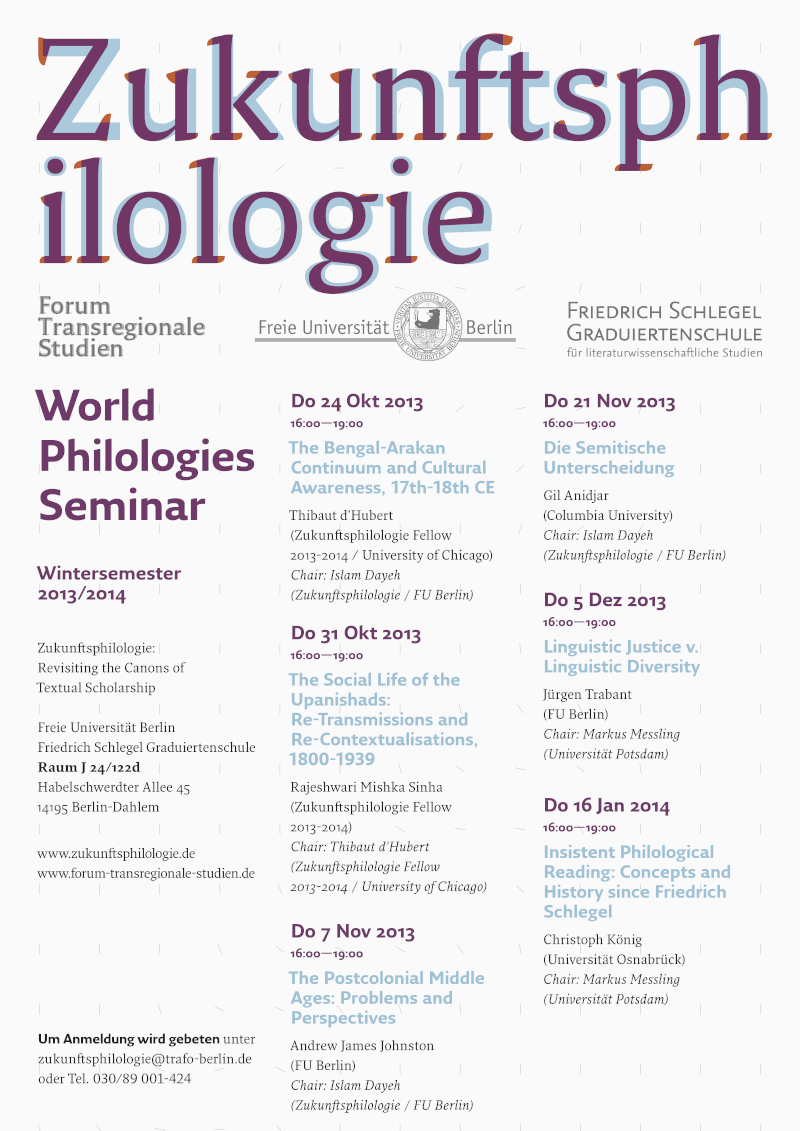In confronting the history of violence we inherit, it is not always easy to identify the line that divides the opposing parties. Only yesterday, “race wars” appear to tear the world apart, followed by national and nationalist struggles. As the twentieth century drew to a close, ethnic conflicts were leading to paroxysms of violence, only to give way to the “clash of civilizations,” which translated the growing role “religious violence” seems to play in world affairs. An understanding of violence must attend to its historical unfolding and not only to its current manifestations, and few explanations seem as venerably ancient as religion. At the same time, when it comes to violence, few religions seem as worthy of our current concerns than “monotheistic” religions. In my presentation, I want to consider the parallels - or lack thereof - between two explanatory schemes in the history of violence: the nineteenth century claim that Semites invented religion (that is, monotheistic religion), and the more recent claim that monotheism (what Jan Assmann calls “the Mosaic distinction”) brought hatred (that is, religious hatred) into the world.
Seminar Texts:
Freud, Sigmund: Moses and Monotheism, The Hogarth Press and the Institute of Psycho-Analysis, 1939.
Assman, Jan: The Prize of Monotheism, Stanford University Press, 2010, pp. 1 - 30.
Die Semitische Unterscheidung
Gil Anidjar (Columbia University); Chair: Islam Dayeh (Freie Universität Berlin)
Freie Universität Berlin, Raum J24/122d, Habelschwerdter Allee 45, 14195 Berlin

Gil Anidjar teaches in the Department of Religion, the Department of Middle Eastern, South Asian, and African Studies, and at the Institute for Comparative Literature and Society at Columbia University. He is spending the current academic year at the Faculty for Media and Communication in Belgrade, Serbia. His latest book, Blood: A Critique of Christianity is forthcoming with Columbia University Press.

